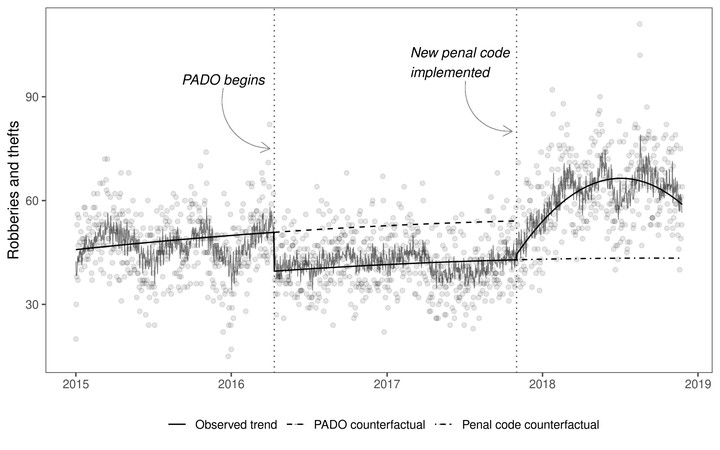When the law changes: The impact of a change in criminal justice policy on a long-term hot spot policing program

Abstract
In 2016, Montevideo implemented a large-scale hot spot policing program credited with city-wide reductions in robberies and thefts during its first year. However, these reductions were followed by a sudden increase in robberies and thefts in late 2017. Using interrupted time series regressions, we investigated three potential explanations for this increase: 1) the failure of the hot spot policing program to maintain crime decreases; 2) improved crime recording by police patrols using tablet computers; and 3) the change from an inquisitorial to an adversarial criminal justice process. We find that the hot spot policing program continued to be associated with crime reductions until November 2017. Subsequent increases were strongly associated with the new criminal justice process, while tablets had a positive, albeit negligible, impact. The findings illustrate how the unintended consequences of criminal justice reforms, desirable as such reforms may be, can eliminate crime reductions achieved using hot spots policing.